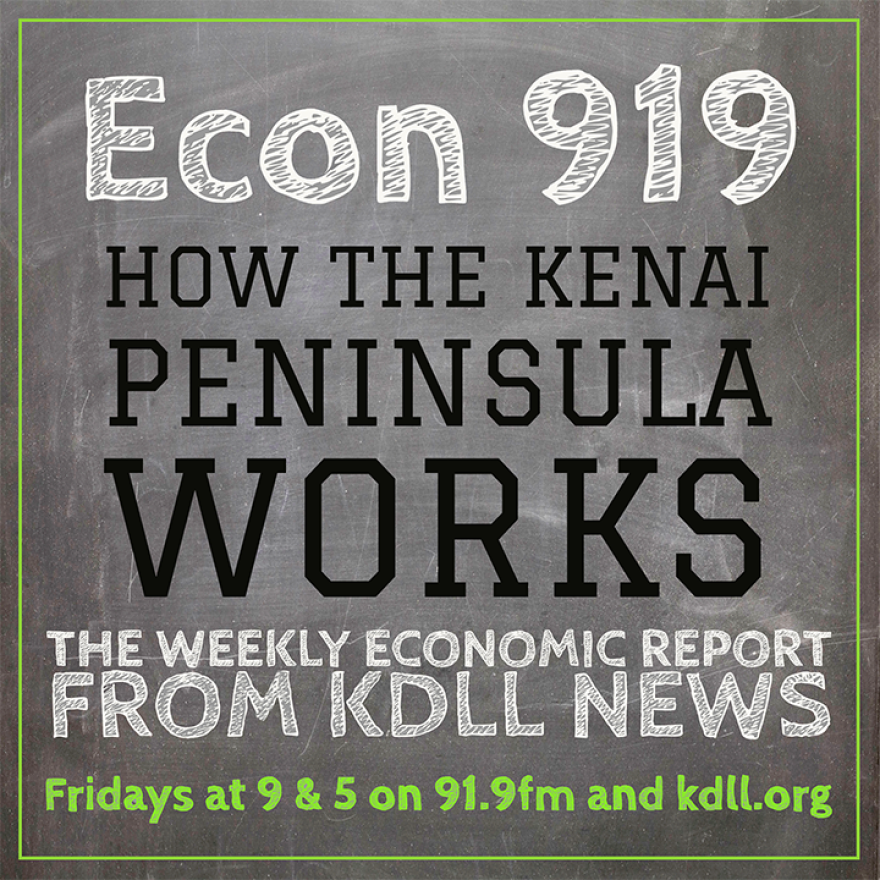Sales tax is important on the Kenai Peninsula. Borough sales tax translates to funding for schools.
Officials anticipated a drop in sales tax revenue during the pandemic. Recently released data show the taxable sales reported to the borough in 2020 were down over $116 million from 2019, a change of 10 percent. In Homer, the difference was 8 percent. In Seward, it was a 35 percent difference.
But those losses were not equally distributed. The cities of Kenai and Soldotna saw their taxable sales slightly increase from 2019 to 2020.
Mouhcine Guettabi, an associate professor of economics at the University of Alaska Anchorage, says economists are finding that to be true on a large scale.
KDLL: What are we seeing in terms of how taxable sales reported and sales tax revenue in Alaska are being affected by the pandemic?
MG: The pandemic has affected every dimension of our lives. Spending patterns have changed quite considerably.
At a national level, to start with, most states are reporting tax revenue that are higher than what they initially anticipated. The same is true for some Alaska places that are not as sensitive to tourism. Clearly, there are communities that are sensitive to tourism and that have lost out on sales taxes and are going to see considerably lower revenues.
However, it’s important to note that when the pandemic first hit, many of us are stuck at home. And when you look at things like retail sales and grocery spending and traffic, or foot traffic in grocery stores, you see that it’s been really, really elevated. And to me, that partially explains why sales taxes, in communities that do have them, have stayed fairly robust.
And the fact that many people — again, Alaska is going through a very tough recession. However, the vast majority of people have kept their jobs. Savings rates are much, much higher. They’re taking fewer trips out of the state, they’re spending considerably less on services. So some of that saving is being reallocated to things that are potentially being captured by sales taxes.
So I guess part of it is behavioral, part of it is you have a captive audience, people are not leaving their communities so they’re spending in the stores that happen to be open.
And I’ll just add one more thing, is that the federal government has injected a tremendous amount of money into the Alaska economy. So the money that’s come from the federal government to Alaska exceeds $5 billion. And so people have gotten stimulus checks, and some of that money obviously makes it into the economy and makes it into stores and makes it into retailers.
KDLL: You mentioned that people were stuck at home. But of course, in Alaska, people were stuck at home in the sense that they couldn’t go to work or school but they were still able to go to the store. There wasn’t that complete and total lockdown that some places saw. Do you think that these numbers would have been much different if there was more of a lockdown or if the pandemic had hit in the same way that it did in other places earlier on?
MG: Most of the research that has come out over the last few months is showing that declines in spending are a result of people’s mobility and behavior, and less a result of decisions that are being made by government. Meaning, people were responding to the likelihood or potentially being infected, or fear around the virus, rather than government restrictions specifically.
Alaska’s done a good job throughout the summer in maintaining lower cases, and obviously stores remained open throughout it. So I think that the lower case count helps in most of us still engaging in quasi-normal activity, and the fact that some stores remained open obviously helped. But again, the research is fairly consistent in showing that spending declines preceded closures, again indicating that once the pandemic started hitting, people scaled back on gatherings, even before restaurants and bars started closing.
You can see the Kenai Peninsula Borough's updated sales tax data here.




